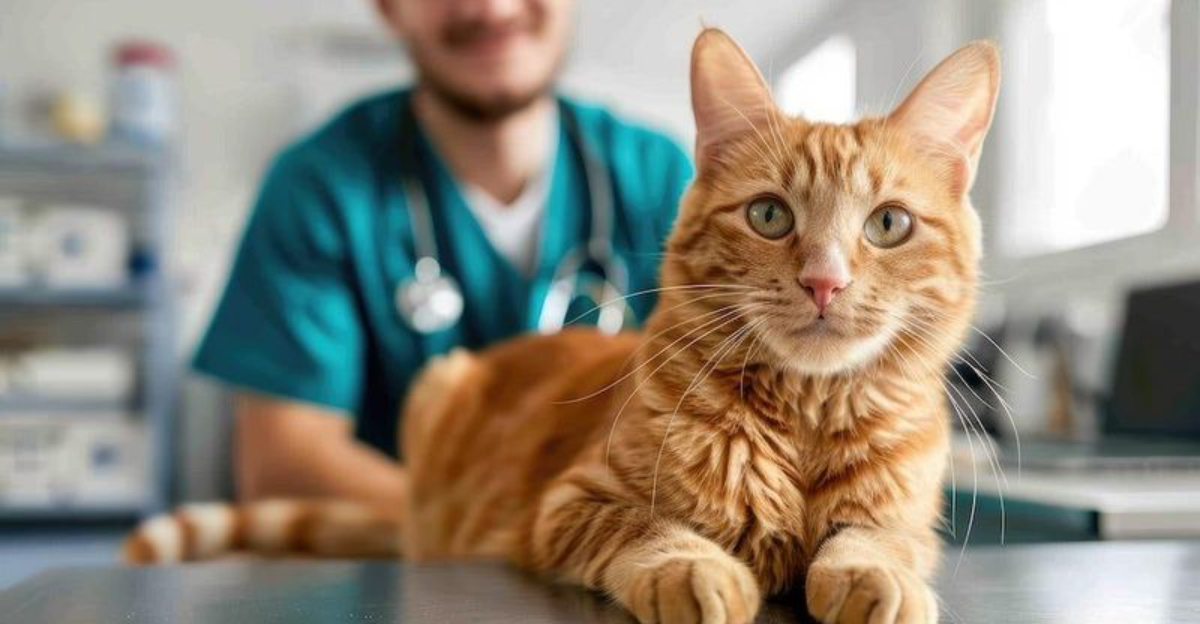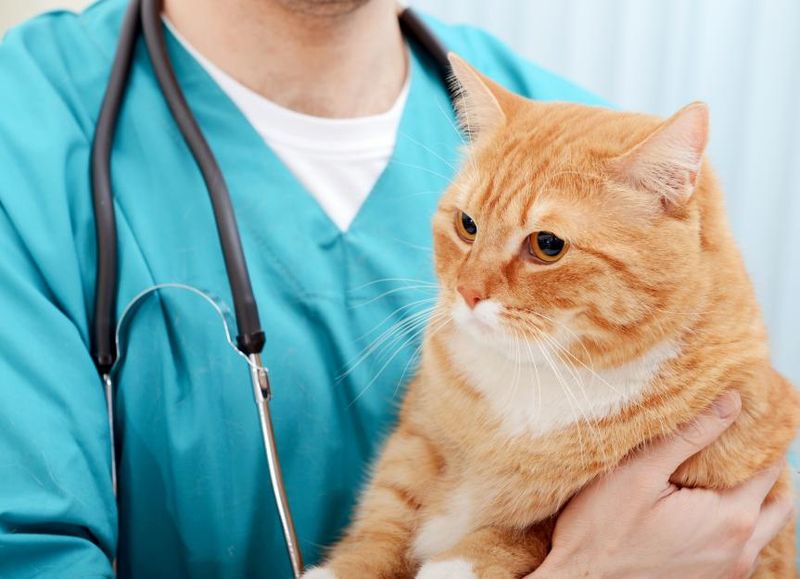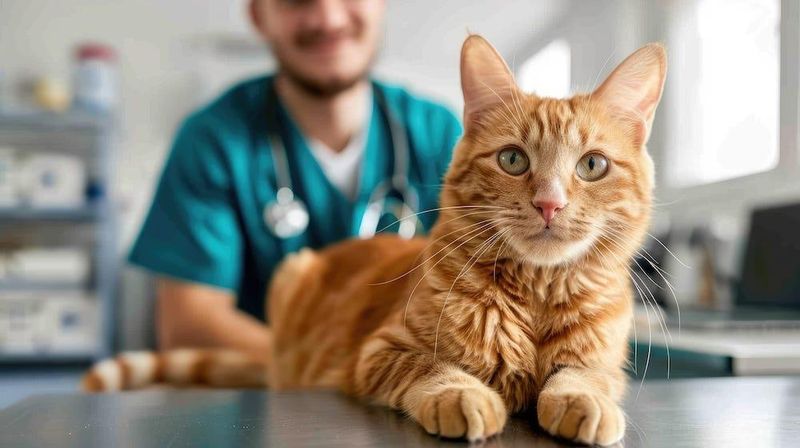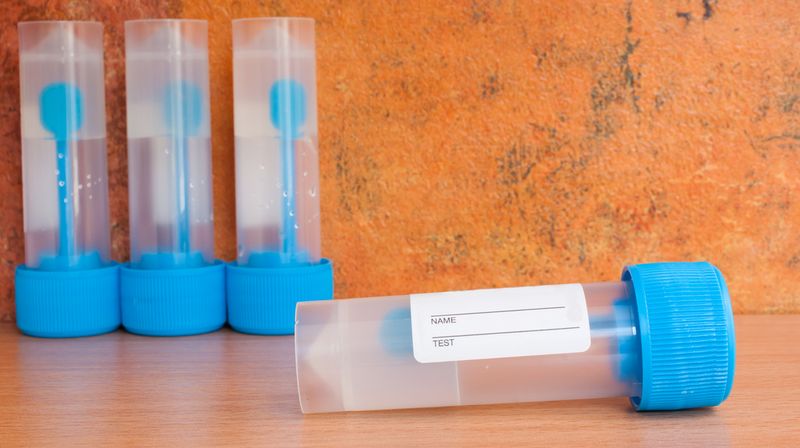📖 Table of Content:
As a cat owner, you’re used to keeping an eye on your pet’s health, from their diet to their behavior. But there’s one area of feline wellness that often gets overlooked — what’s happening in the litter box. While it may not be the most glamorous topic, examining your cat’s feces plays a vital role in detecting hidden health issues, especially parasitic infections that can go unnoticed for months.
Fecal testing is a routine diagnostic tool used by veterinarians to screen for a wide range of intestinal parasites. These parasites can affect your cat’s digestion, immune system, and overall well-being. Even indoor cats, which many assume are safe from such threats, can be exposed through contaminated environments, grooming habits, or even a single flea.
In this article, we’ll walk through some of the most frequently asked questions about fecal testing. Whether you’re a new cat parent or just want to stay informed, this guide will help you understand the purpose, process, and benefits of this essential check-up. Let’s dig into what you should know — and why that tiny stool sample matters more than you might think.
1. What is a fecal test for cats?
A fecal test for cats is a laboratory examination of a small stool sample designed to detect the presence of intestinal parasites. Typically, the procedure involves mixing the sample with a special solution to separate parasite eggs or organisms for easier microscopic inspection. The process is quick and non-invasive for your cat — all it takes is collecting a fresh bit of poop. Because parasites like roundworms and giardia are difficult to detect without lab equipment, fecal tests are a reliable way to catch early signs of infection. Some veterinary clinics may also use more advanced diagnostics such as enzyme immunoassays or PCR (polymerase chain reaction) tests to detect less common pathogens. Overall, this kind of test is an essential part of preventative care for felines of all ages.
2. Why is fecal testing important?
Fecal tests are essential because they uncover hidden parasites that could compromise your cat’s health. Many intestinal parasites don’t produce obvious symptoms at first but can eventually cause diarrhea, vomiting, or unexplained weight loss. By the time a cat shows signs of discomfort, the infection may have already progressed significantly. Routine testing allows vets to diagnose and treat these problems early before complications arise. Another important factor is that some parasites are zoonotic — meaning they can spread from pets to people, especially in households with children or immune-compromised individuals. Preventing these infections in your cat protects the entire family. With a simple test, you’re not only taking care of your pet but also creating a safer home environment.
3. How often should my cat get tested?
The frequency of fecal testing depends largely on your cat’s age, lifestyle, and health status. For kittens, most veterinarians recommend testing several times during their first year of life since young cats are more vulnerable to parasites. Adult cats in good health usually need a fecal exam once annually as part of their wellness check-up. However, if your cat goes outdoors or interacts with other animals, more frequent testing may be advisable. It’s also a good idea to schedule a test any time your cat experiences digestive issues like diarrhea or a loss of appetite. Keep in mind that even cats without symptoms may carry parasites, which makes routine screenings all the more important. By following your vet’s recommendations, you can stay one step ahead of potential problems.
4. How is the test performed?
Performing a fecal test is straightforward, though timing and collection are important. Your veterinarian will usually ask for a stool sample that is no more than 12 hours old, as fresh specimens yield more accurate results. You’ll place the sample in a clean, sealed container — often one provided by the clinic — and bring it in for analysis. In the lab, the sample is mixed with a flotation solution that causes parasite eggs to rise to the surface for easier identification under a microscope. Some clinics may use centrifugation or antigen testing for better sensitivity, especially when dealing with elusive organisms like giardia. While the process might sound technical, it’s entirely painless for your cat. The entire analysis is usually completed within a day or two, and your vet will follow up with the results and next steps if needed.
5. What parasites can be detected?
Fecal exams are designed to detect a variety of parasites that can impact a cat’s health, some more common than others. Roundworms are among the most frequently found in kittens and can cause bloating and digestive issues. Hookworms and whipworms are also on the list, both of which latch onto the intestines and can lead to blood loss and anemia. Tapeworms, which often come from fleas or eating rodents, may be spotted as rice-like segments near the anus but still require confirmation via testing. Single-celled organisms like giardia and coccidia are harder to detect but can cause severe diarrhea and dehydration, especially in young or sick cats. Not all parasites are active all the time, so repeated or multiple-method testing may be necessary for accurate detection. Early identification gives your vet a clearer path toward effective treatment and monitoring.
6. What if the test is positive?
If your cat tests positive for parasites, your veterinarian will recommend a treatment plan tailored to the specific organism found. Most parasites respond well to prescription dewormers or antiparasitic medications that may be given as pills, pastes, or injections. Depending on the type and severity of the infection, your cat may need one or more rounds of treatment, followed by a repeat test to confirm success. During this period, you’ll need to keep the litter box clean and possibly isolate your pet to prevent transmission to other animals. Environmental cleaning is also important — washing bedding, vacuuming frequently, and disinfecting surfaces can help prevent reinfection. While a positive result may sound alarming, most parasite infections are treatable and manageable with prompt care. With guidance from your vet, your cat can be back to normal in no time.
7. Can parasites be prevented?
Preventing parasites starts with proactive care and cleanliness, both inside and outside the home. One of the easiest ways to keep your cat parasite-free is by using monthly preventives, many of which also protect against fleas and heartworms. Keeping your cat indoors or limiting their access to contaminated areas like gardens or unsupervised outdoor spaces reduces the chance of exposure. Always clean the litter box daily and wash your hands afterward to minimize contact with potentially infectious material. Avoid feeding raw or undercooked meat unless it’s part of a vet-approved diet plan, as it can carry parasitic eggs. Kittens, seniors, and immunocompromised cats are particularly at risk, so extra vigilance is key in those cases. By combining good hygiene with regular vet checkups and fecal testing, you’re giving your cat the best shot at a parasite-free life.







